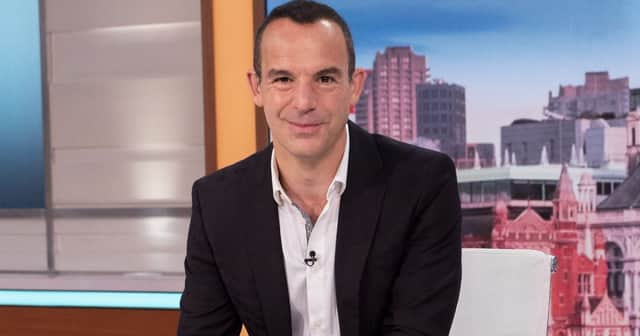Martin Lewis warns of ‘clever’ scam texts aiming to steal bank details


MoneySaving Expert Martin Lewis has warned against a ‘clever’ new version of a delivery scam text.
The scam, which is used by fraudsters to try and steal your bank details, has been circulating since the early days of lockdown during the Covid-19 pandemic.
Advertisement
Hide AdAdvertisement
Hide AdOn Twitter, he shared a delivery scam text he received which Mr Lewis warns is designed to steal the recipient's bank details as it prompts them to pay a 'fee' for a parcel delivery that is delayed or needs to be rescheduled.
What did he say?
The financial guru wrote on Twitter: "Beware. Just had a clever version of the 'pay £1.99 for Post Office Parcel delivery' scam text, aiming to steal bank info.”
“The 'fee' isn't mentioned in the text, it talks about "delays in transit" and offers "a date to reschedule". It's only when you click thru it mentions a fee.”
He said that anyone receiving the message should forward it to 7726 for it to be investigated by Ofcom.
Advertisement
Hide AdAdvertisement
Hide AdOne person responded to his tweet and wrote: "We need the [UK] Government to be much more proactive here, in terms of informing the public about these scams. We need more leaflets and TV adverts, aimed at older people, to show them examples.”
However, Mr Lewis disagreed, and replied: “Sorry to disagree but no we don't. There are too many scams to inform esp the vulnerable of them all.
“We need better laws and regulation to prevent scams, and govt to actually fund police to investigate & prosecute these criminals, rather than let them scam & defraud with impunity.”
Types of common scams
There are a number of common types of scams that you should be on alert for.
Impersonation fraud
Advertisement
Hide AdAdvertisement
Hide AdThis type of scam is where the fraudster pretends they are from a renowned brand or service, such as Amazon or even the police.
Some scammers are even pretending to be from energy firms in an attempt to steal cash.
They pretend to be from the fraud department of the bank, tricking you into believing there is a serious problem, and swift action is needed.
Fraud prevention director at TSB, Paul David, said: "Never engage with calls out of the blue. Be suspect about them all.
Advertisement